The year 2020 has shaken the world. The COVID-19 pandemic has brought tremendous shocks to all parts of the globe and has disrupted international relations on a scale unprecedented since World War II. Besides the direct damage that the pandemic has caused to global health and economy, it has aggravated various pre-existing national and international problems and accelerated transformational processes in the international system. As a result, the whole world has plunged into great uncertainty.
Belarus is one of many examples of the pandemic’s disruptive effects at a national level. While only a while ago it appeared one of the most politically stable countries in Eastern Europe, today Belarus finds itself amidst a dramatic political crisis. Although its causes are multifold, the state’s and society’s reaction to the pandemic became a decisive catalyst. Without a doubt, the Belarus crisis will have serious implications not only for the country’s internal development and foreign relations but also for regional security. In recent years, Minsk has played a constructive regional role by offering itself as a neutral venue for peace talks and promoting security initiatives, which aimed at de-escalating military and political tensions between the East and the West. If Belarus is no longer able to perform such a role, regional actors should brace themselves for even more uncertainty already in the months to come.
Under these exceptional circumstances, the Minsk Dialogue Virtual Forum offers a geopolitically unbiased platform where some of the brightest minds from the international expert community will engage in a frank discussion about the multiple crises unfolding in front of our eyes and their implications for regional security. While we are unable to fully solve uncertainty, the Forum will map out possible routes towards international cooperation for the sake of peace and stability in Eastern Europe and Eurasia at large.
This year, the virtual forum will focus on the following main topics:
- The Belarus crisis: What implications will it have for security in Eastern Europe and Wider Eurasia, as well as for Minsk’s relations with Russia and the West?
- The World HandCOV’d: How will the pandemic reshape international institutions and key state actors in Euro-Atlantic and Eurasian security?
- Eastern Europe in 2021: Strategic stability and challenges for regional security.
ABOUT THE MINSK DIALOGUE
The Minsk Dialogue was launched as a Track-2 initiative at the beginning of 2015. Its mission is to offer an open and geopolitically unbiased platform for research and discussions on international affairs and security in Eastern Europe. Regular Minsk Dialogue events gather international experts, as well as high-level officials and diplomats.
The Minsk Dialogue’s team and its network of experts produce analytical reports, policy papers, commentaries, backgrounders, and conference non-papers, which are widely distributed among relevant international stakeholders. All analytical publications and conference materials can be accessed at www.minskdialogue.by.
The inaugural Minsk Dialogue Forum took place in May 2018. It gathered about 500 experts and diplomats from 59 countries. In October 2019, more than 700 participants from 63 countries, including high-level officials and leading international experts, took part in the second edition of the Forum.
Forum partners
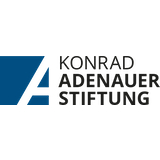

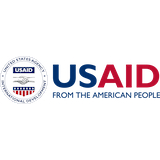

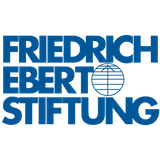
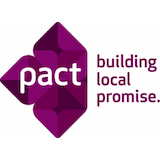
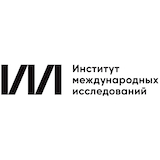
Agenda
All sessions, except for Session 7, are held under the Chatham House Rule
25 November (Wednesday)
|
16.00-16.20 |
Welcome remarks Yauheni Preiherman Director, Minsk Dialogue Council on International Relations, Belarus Jakob Wöllenstein Director Country Office Belarus, Konrad-Adenauer-Stiftung, Germany
|
|
16.20-16.30 |
Presentation of the Forum report In partnership with PACT Dzianis Melyantsou Programme Coordinator, Minsk Dialogue Council on International Relations, Belarus Siarhei Bohdan Fellow, Friedrich Meinecke Institute of History, Freie Universität Berlin; Expert Council member, Minsk Dialogue Council on International Relations, Germany-Belarus
|
|
16.30-18.00 |
Session 1. The World HandCOV’d: Major state actors and stakeholders in East European security In partnership with the Konrad-Adenauer-Stiftung Thomas Graham Distinguished Fellow, Council on Foreign Relations; Senior Advisor, Kissinger Associates, USA Nadezhda Arbatova Head, Department for European Political Studies, Primakov National Research Institute of World Economy and International Relations (IMEMO), Russian Academy of Sciences, Russia Amelie Stelzner Policy Advisor for Armed Forces and Society, Konrad-Adenauer-Stiftung, Germany Zhang Xin Associate Professor, School of Advanced International and Area Studies; Deputy Director, Centre for Russian Studies, East China Normal University, China Paul Révay Member of the Board of Trustees, “Friends of Europe” (Belgium), France Zachary Paikin Senior Visiting Fellow, Global Policy Institute (London); Senior editor, Global Brief Magazine, Canada Moderator Jakob Wöllenstein Director Country Office Belarus, Konrad-Adenauer-Stiftung, Germany
|
|
18.15-19.45 |
Session 2. The World HandCOV’d: Major multilateral actors and stakeholders in East European security In partnership with the Konrad-Adenauer-Stiftung Andrey Zagorskiy Head of Department of Arms Control and Conflict Resolution Studies, Institute of World Economy and International Relations; Professor, MGIMO-University, Russia Mona Ali Khalil Director, MAK LAW INTERNATIONAL; Affiliate of the Harvard Law School Programme on in International Law and Armed Conflict; former UN Senior Legal Officer Wolfgang Richter Senior Associate, German Institute for International and Security Affairs (SWP), Germany Samuel Charap Senior Political Scientist, RAND Corporation, USA Benno Zogg Senior Researcher, Centre for Security Studies, ETH Zurich, Switzerland Moderator Yulia Nikitina Associate Professor and Research Fellow, Centre for the Post-Soviet Studies at the Moscow State University of International Relations (MGIMO), Russia |
26 November (Thursday)
|
15.45-15.55 |
Presentation. Geopolitical orientations in Belarusian public opinion. Andrey Vardamatsky Sociologist, Belarus
|
|
16.00-17.30 |
Session 3. Belarus Crisis: Implications for Belarus-Russia relations In partnership with the MGIMO Institute for International Studies Aleh Makarau Director, Belarusian Institute for Strategic Research, Belarus Elena Kuzmina Head, Section for Belarus, Moldova and Ukraine, Primakov National Research Institute of World Economy and International Relations (IMEMO), Russia Andrey Rusakovich (TBC) Associate Professor, Belarusian State University; Chairman of Board, Centre for Foreign Policy and Security Studies, Belarus Sergey Markedonov Leading Researcher, Euro-Atlantic Security Centre, Institute of International Studies at MGIMO University; Editor-in-Chief, Journal of International Analytics, Russia Pavel Daneiko CEO, IPM Business School, Belarus Igor Okunev Director, Centre for Spatial Analysis in International Relations, MGIMO University, Russia Moderator Andrey Sushentsov Director, Institute of International Studies at MGIMO University; Programme Director, Valdai Discussion Club, Russia
|
|
17.45-19.15 |
Session 4. Belarus Crisis: Implications for Belarus-West relations In partnership with the Friedrich-Ebert-Stiftung Eugene Rumer Director and Senior Fellow, Russia and Eurasia Program, Carnegie Endowment for International Peace, USA Elena Korosteleva Professor of International Politics, Director of the Global Europe Centre, University of Kent, UK Kateryna Bornukova Academic Director, BEROC Economic Research Centre, Belarus Andris Spruds Director, Latvian Institute of International Affairs, Latvia Dzianis Melyantsou Programme Coordinator, Minsk Dialogue Council on International Relations, Belarus Moderator Valeriya Klymenko Programme Coordinator, FES Belarus, Friedrich-Ebert-Stiftung
|
|
27 November (Friday) |
|
|
15.00-16.15 |
Session 5. Belarus Crisis: Implications for regional security in Eastern Europe Vygaudas Ušackas Member of the Board, Avia Solutions Group; former Minister of Foreign Affairs of Lithuania; former EU Ambassador to Russia, Lithuania Andrey Sushentsov Director, Institute of International Studies at MGIMO University; Programme Director, Valdai Discussion Club, Russia Anna Maria Dyner Analyst, Polish Institute for International Affairs (PISM), Poland Hanna Shelest Editor-in-Chief, UA: Ukraine Analytica, Ukraine Yauheni Preiherman Founder and Director, Minsk Dialogue Council on International Relations, Belarus Moderator Jakob Wöllenstein Director Country Office Belarus, Konrad-Adenauer-Stiftung, Germany
|
|
16.15-17.30 |
Session 6. Belarus Crisis: Implications for regional security in Wider Eurasia In partnership with the GCFR COMPASS project Viktar Shadurski Dean, Faculty of International Relations, Belarusian State University, Belarus Anar Valiyev Dean, School of Public and International Affairs, ADA University, Azerbaijan Cholpon Turdalieva Professor, American University of Central Asia, Kyrgyzstan Montu Saxena Director, Cambridge Central Asia Forum, University of Cambridge, UK Farrukh Salimov Head, Department of Dipomacy and Foreign Policy, Tajik National University, Tajikistan Ulugbeck Khasanov Chair, International Relations Department, University of World Economics and Diplomacy, Uzbekistan Moderator Elena Korosteleva Professor of International Politics, Director of the Global Europe Centre, University of Kent, UK
|
|
17.45-19.15 |
Session 7. Eastern Europe in 2021: Strategic stability and challenges for regional security In partnership with the European Leadership Network Stefano Stefanini Former Permanent Representative of Italy to NATO; former Diplomatic Advisor to the President of Italy; ELN Executive Board member, Italy Philip Breedlove Former NATO Supreme Allied Commander Europe, USA Oksana Antonenko Director, Global Risk Analysis, Control Risks Group; Global Fellow, Kennan Institute, Woodrow Wilson Centre for Scholars, UK Moderator Julia Berghofer Policy Fellow, European Leadership Network
|
|
19.15 -19.30 |
Concluding remarks |
